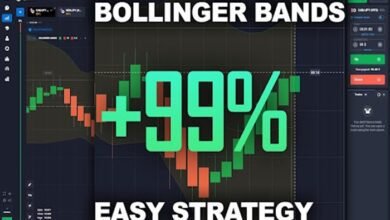How Does Pledge Help Traders in Intraday Trading?

In the world of intraday trading, where every second counts, the concept of pledge plays a crucial role in safeguarding your trades. Pledging involves using your securities as collateral, acting like a protective shield for your intraday transactions.
This practice is like a trusty companion, ensuring that you have the necessary financial support to navigate the unpredictable nature of intraday trading.
Understanding how pledge works allows you to confidently engage in intraday activities, knowing that your assets are there to back you up in the dynamic market environment. So, get ready to discover how this pledge for margin can boost your trading game and pave the way for potential profits.
What is Margin Pledge?
Margin pledge is a process where traders use their securities as collateral to get MTF (margin trading facilities). It’s also known as a collateral pledge or securities pledge.
Here’s how a margin pledge works:
- A trader pledges securities like stocks, bonds, or mutual fund units from their portfolio.
- The stockbroker uses the securities as collateral for the funds that the trader borrows.
- The trader can use the borrowed funds to buy more securities.
Margin pledge can help traders gain additional margin for F&O trading. For example, if an investor pledges a stock that’s trading at ₹100, they can get a margin of ₹85 for F&O trading.
Margin pledge is different from MTF (Margin trading Facility) as it allows traders to pledge shares bought under the MTF facility to get additional trading margins. MTF is a loan, so interest is charged on the borrowed amount.
How Pledge Helps Traders in Intraday Trading
In the context of intraday trading, margin pledge can provide several benefits to you. You can use margin pledge on the Dhan trading platform. You can pledge shares or holdings to get margin trading.
1. Increased Leverage
Pledging securities boosts your intraday trading by increasing buying power. Leverage grows without additional cash, letting you take larger positions.
It’s an efficient way to amplify trades, making your capital work harder and enabling more substantial market participation during the day.
2. Cost Efficiency
In intraday trading, pledging securities boosts your purchasing power, enabling cost-efficient trading. With increased leverage, you make more trades using less of your own capital.
This strategy leverages idle assets, making your portfolio more dynamic and responsive to market opportunities, enhancing your overall intraday trading experience.
3. Utilization of Idle Securities
Utilize margin pledge to maximize your intraday trading potential. By pledging idle securities, you turn stagnant assets into valuable collateral, increasing your buying power without additional cash.
This enables you to efficiently trade larger positions, enhancing the overall effectiveness of your intraday strategies while making the most of underutilized holdings in your portfolio.
4. Quick Access to Funds
Pledging securities for margin in intraday trading provides you with rapid access to funds. By utilizing these securities as collateral, you quickly enhance your buying power, facilitating prompt decision-making and execution.
This agility is crucial in the fast-paced environment of intraday trading, allowing you to capitalize on market opportunities with immediate financial flexibility.
5. Diversification of Trading Strategies
Diversify your intraday trading strategies effortlessly with a margin pledge. By using a variety of securities as collateral, you can explore different market opportunities and tactics.
This flexibility empowers you to optimize your approach, adapt to changing market conditions, and enhance your overall trading portfolio.
Conclusion
Using a pledge in intraday trading can be a beneficial strategy for traders. It provides them with additional funds and leverage, allowing for larger trades and potential profits.
However, it’s crucial to approach pledging responsibly, understanding the risks involved. You should carefully manage your positions and stay informed about market conditions.





